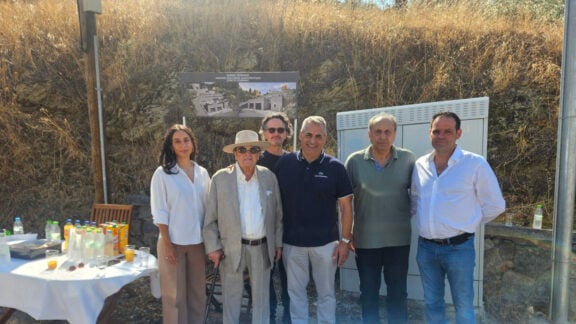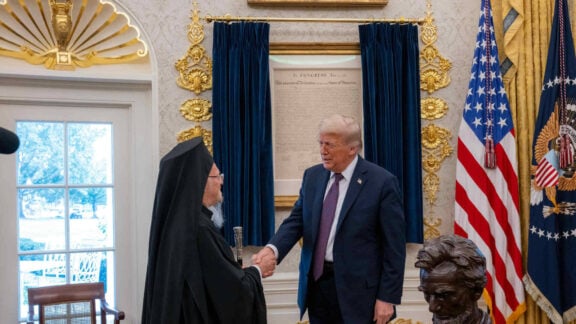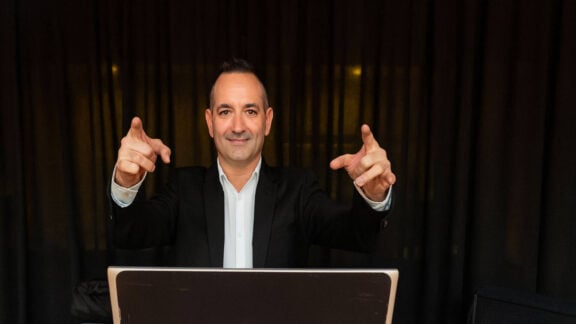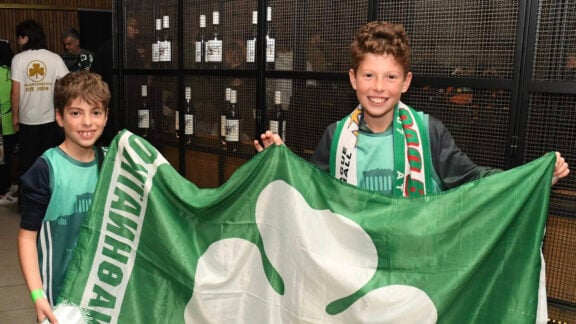In a recent opinion piece published at Neos Kosmos, Prof. Anastasios Tamis argues that despite solid foundations, a large numerical base and representation in public life, the Greek Australian community is lacking “cohesive attitudes” and clearly defined aspirations for the future.
Some of the questions he poses are:
- Had we ever designed as a group (forget about implementation) any ethnic, cultural sequencer, any socio-political driver, placing in a concrete fashion where we are and what do we wish to achieve now and in the future? Did we ever have any platform, any plan, or agenda?
- Is there any serious course of communication between the Hellenic Diaspora and the Metropolis? Had we ever organised any conference congress or even a colloquium to overview the current rubric of our internal affairs via-a-vis our bond, rapport, or even affiliation with the Grecian Greeks? When was the last time that we had a genuine appraisal of our “national issues” in Australia? Are we happy with the current idleness and indifference that had incapacitated our collective ability?”
Rejuvenating our community’s human resources “in posts of leadership and influence”, Prof Tamis says, will require acknowledgement of “self-imposed constraints” and understanding of “our congenial abilities, our potential as a persuasive and instrumental ethnic group”, an excerpt reads before the piece concludes with the phrase:
“The key word is “Hellenism”, and its relation to the development of the current world.”
In response to the opinions expressed in the piece, two Neos Kosmos readers have shared their views, published as follows:
An ‘ideal’ All Australian Hellenic Council
“Your initial summary of Hellenic Australian achievers & achievements is spot on,” writes Elly Symons on socials addressing Prof. Tamis.
The Vice President of The Australian Parthenon Committee and Co-Founder of The Acropolis Research Group argues against the labelling of the community as non-cohesive and comments on the possibility of a “high level umbrella organisation”:
“As individuals & communities we have demonstrated admirable achievement as migrants to this great land.
Whilst there have been throughout our history various squabbles, errors & things we could have done better, it is unfair to summarily dismiss our entire community as ‘uncohesive’.
Many of the individuals and organisations mentioned evolved organically by necessity & desire for social and philanthropic benefit. By this very nature, they could not come under some imagined high level umbrella organisation.
To retrospectively design such a vehicle for cohesion is possibly unrealistic but not out of the question.
An All Australian Hellenic Council with representatives from all these groups with a National Annual Conference might be an ideal.
It would require a constitution which in itself would require agreement as to its role, function, objectives, governance, authority, mandate and enforcement of decisions.
Many of our current organisations have their own governance structures and in more recent times are run quite well.
Our community enjoys extremely high levels of goodwill at present.
We are doing fine but there is room for improvement.”
A ‘lost’ opportunity
Adjunct Professor and businessman Greg Stamboulidis also reacted to the concept of a needed ‘restart’ for the Greek Australian Community as argued by Prof. Tamis.
Adj. Prof. Stamboulidis writes in a letter sent to Neos Kosmos:
“The Greek Community had a great opportunity to “restart” when in 1997, La Trobe University had so generously given us a 99 year peppercorn lease to house the Dardalis Archives and the National Centre for Greek Studies and Research. (EKEME in Greek) . Unfortunately in October 2008, EKEME closed after the questionable management at the time was warned on numerous occasions to get their “affairs in order”, as The Age had reported on their front page (and as did Neos Kosmos and other media ).
I’m not sure if we have learnt our lesson from that era ….
If we have, we need to engage people who have no personal agendas or gains and have the integrity to respect the Greek Community who will trust them, “once again”, with such an important project . Simply put, we need to learn from our mistakes and not repeat them for a better future for our children and Hellenism.






